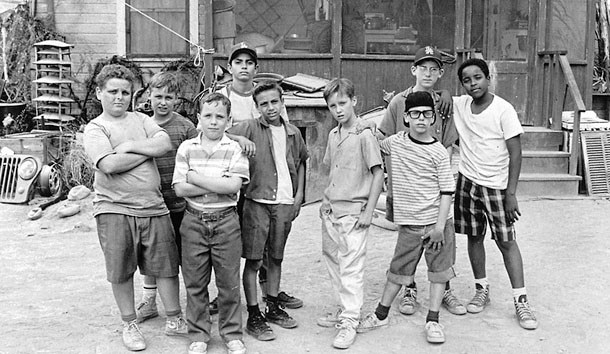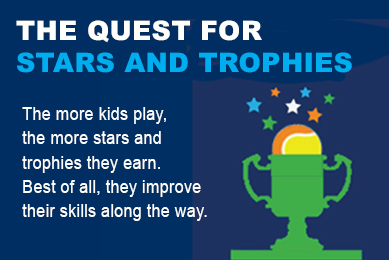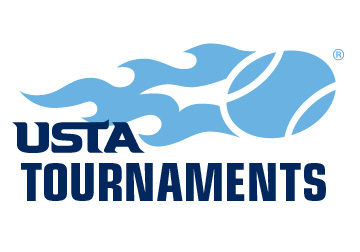In Defense of Non-Supervision
By Kurt Desautels,
Editor, Colorado Tennis
I may be dating myself here, but I grew up in a time where kids were responsible for their own sports leagues.
After school, or on any given Saturday, all the neighborhood kids could be found at the local park, some with their parents having a picnic, but mostly just kids with nothing else to do who’d been kicked out of the house to “go enjoy the outside!”
Someone would bring a football — Nerfs were exceptionally popular — another a Frisbee or a rubber playground ball. After a quick poll, the game was decided. Someone would yell “CAPTAIN”, followed by several identical yelps. Usually, whoever brought the ball would be elevated to “captain” status. It was really cool to be a captain, it felt empowering.
After a quick rochambeau to decide who picked first — I always went “rock”, it never failed — we took turns picking our teams. As in life, there was a hierarchy to the selection process. Best friends first, followed by best athletes followed by acquaintances. The last remaining few were mostly younger brothers (or sisters) and the weakest athletes. Darwin at work.
We’d agree on a few ground rules — count to “3 Mississippi” before rushing, and whether the tree or the bush was the end zone — and then it was game on. Teammates would argue over who got to kick off. Opponents would argue that they counted too fast, or whether we went out of bounds on a pass.
You may not believe me when I tell you, we never had a referee to resolve the dispute. We never once brought in a coach to help us with strategy or techniques. We relied on the honor system, and learned to play the game as we played the game. That was a long time ago.
The missing ingredient
By and large, kids aren’t engaged in unsupervised play these days. And in my mind, it’s devastating them.
As parents, we’ve become so inundated with news stories about the dangers of non-supervision that many of us have decided to completely isolate our children from all dangers, real and imagined.
Kids no longer play pick-up games in the style of the coming-of-age movie The Sandlot (pictured above). They no longer pick their own captains and choose their own teams and form their own rules. They don’t keep score, resolve disputes on their own, or help each other learn the game.
And they don’t play.
Kids don’t play games any more.
They play sports.
They compete. They win. They lose. They train. Some take lessons. Others work privately with a coach. They have seasons. And statistics. And playoffs. And tournaments. And travel.
Some of us pay outrageous sums of money so our children can “take advantage of an opportunity” or “learn from the best coaches”.
But when they quit, statistically around the age of 13, we are left frustrated that our effort and dedication wasn’t enough to keep our kids interested.
We question whether we pushed too hard, or didn’t push hard enough. We ask ourselves 1,000 questions before we ever think to ask our children this one: “Are you having fun?”
Kids who are enjoying their athletic pursuits are far less likely to quit than those youngsters who aren’t, regardless of skill level.
All this gets me to thinking just how much of a mess we’ve made of youth sports.
We all know someone who would fit into the mold of a “helicopter parent” — a parent who takes an overprotective or excessive interest in the life of their child or children.
But even those of us who aren’t ever-present in our kids’ lives frequently exhibit overprotective behavior, especially when it comes to sports.
Perhaps we have a fear of dire consequences: “What if little Johnny doesn’t make the competitive team? He’ll be ostracized by his friends!”
…or overcompensation: “My father never came to my soccer games, so I’m going to stay for every minute of practice.”
…or peer pressure from other parents: “The Smiths have their daughter taking private lessons, so we’d better hire a coach so you can earn a spot on your high school team or we’ll never forgive ourselves!” Guilt is a large component in this dynamic.
Here’s the pitch…
So what’s the take-away from all this? The first thing you should know is that I love youth sports, and there’s absolutely nothing wrong with organized, competitive athletics.
NOTHING!
The problem lies with the perspective that if it’s not “organized”, it’s not legitimate, and therefore it’s a waste of time.
What we often fail to see is that unsupervised, disorganized, amateur games create the very conditions that kids crave — where they are in charge, having fun with their friends, and not at all concerned about whether their performance will dictate how much playing time they get in the next tournament. Because playing is what they need, not worrying about their batting average or first serve percentage.






